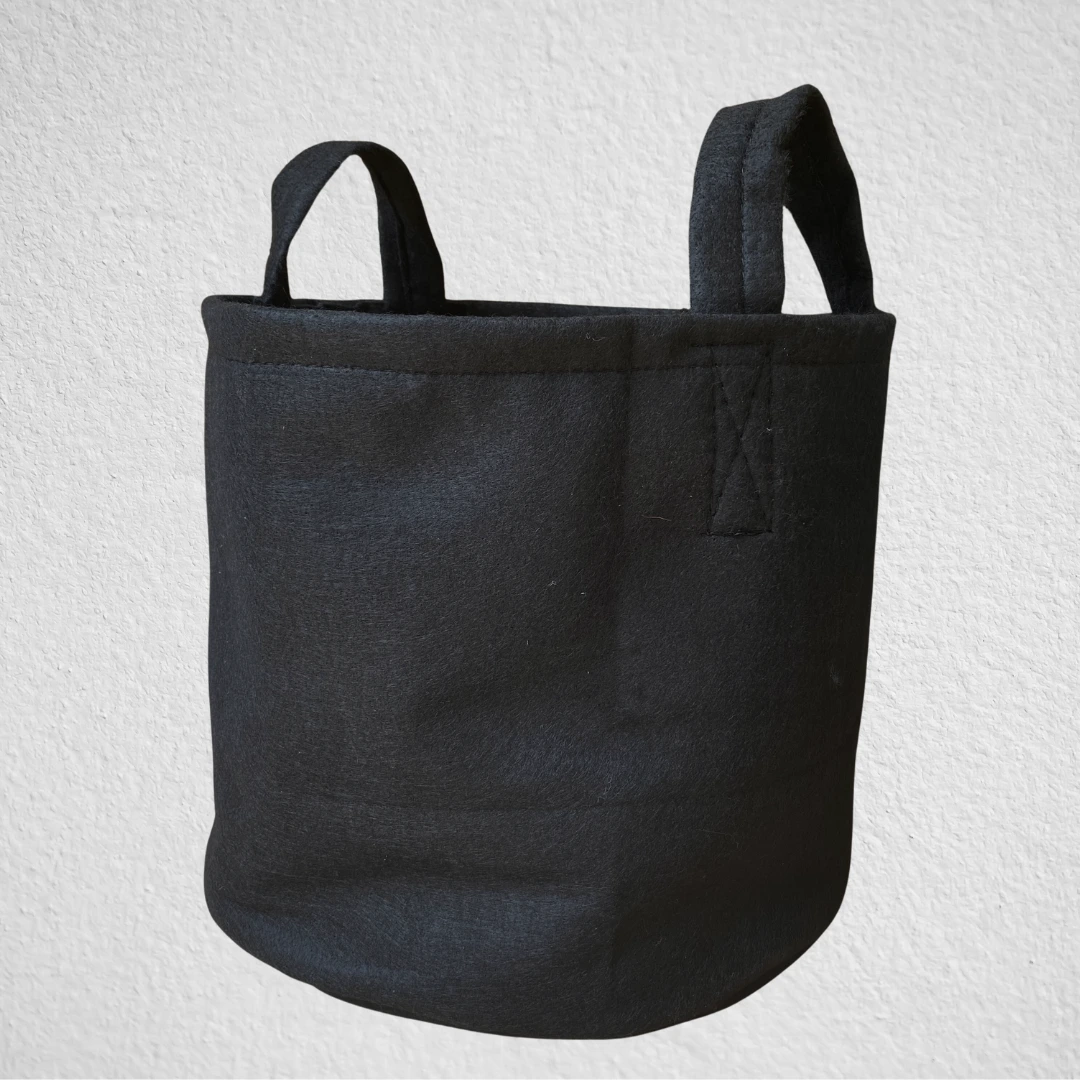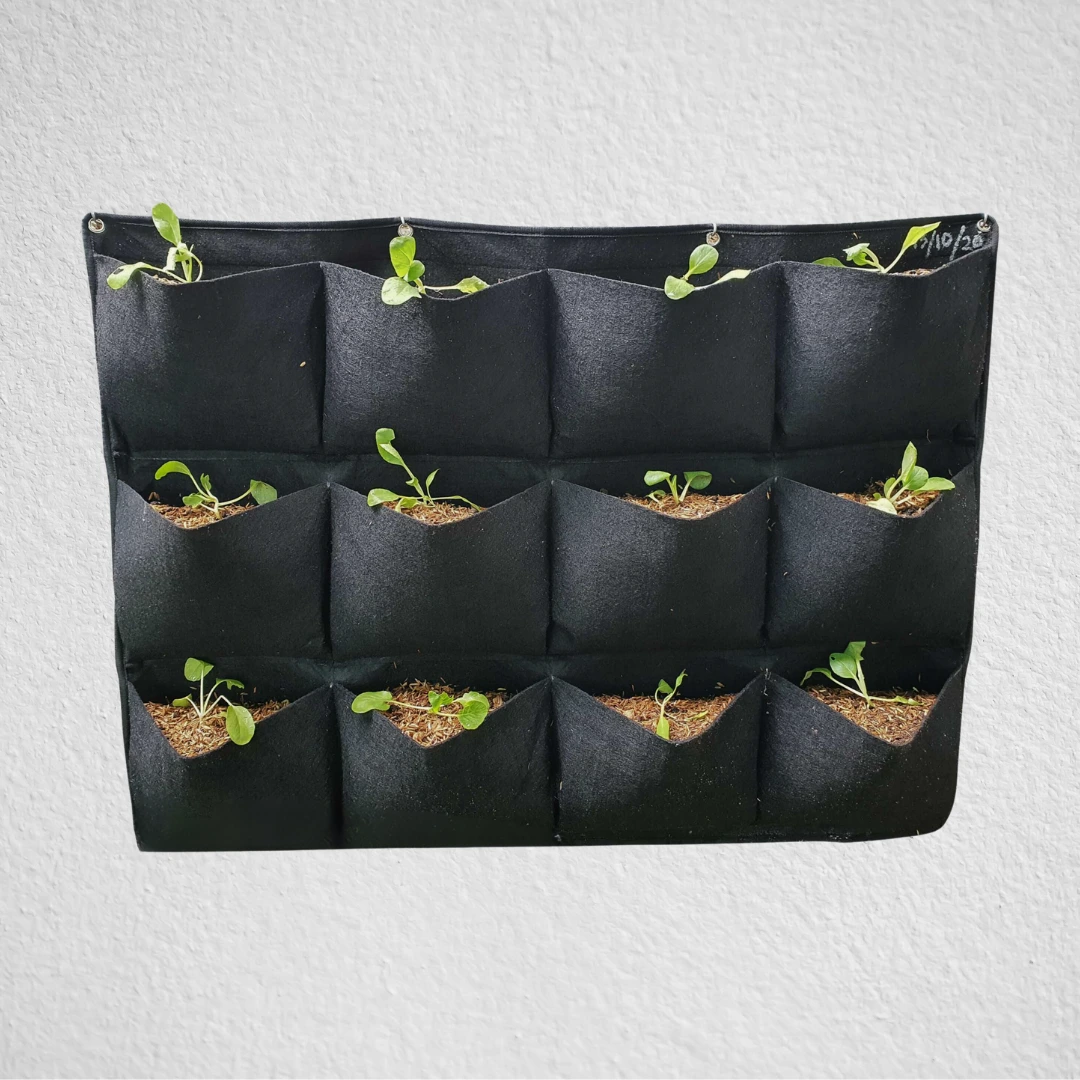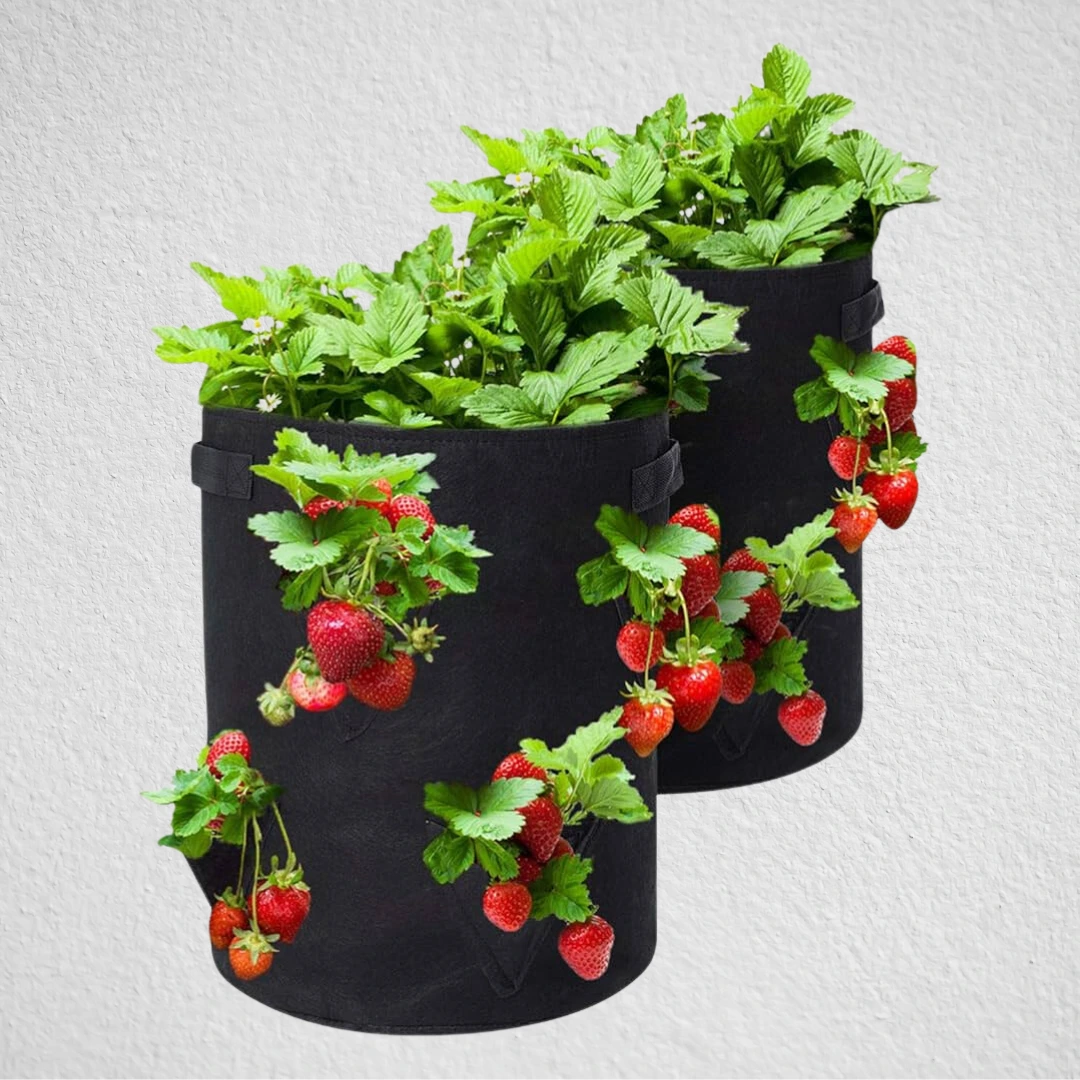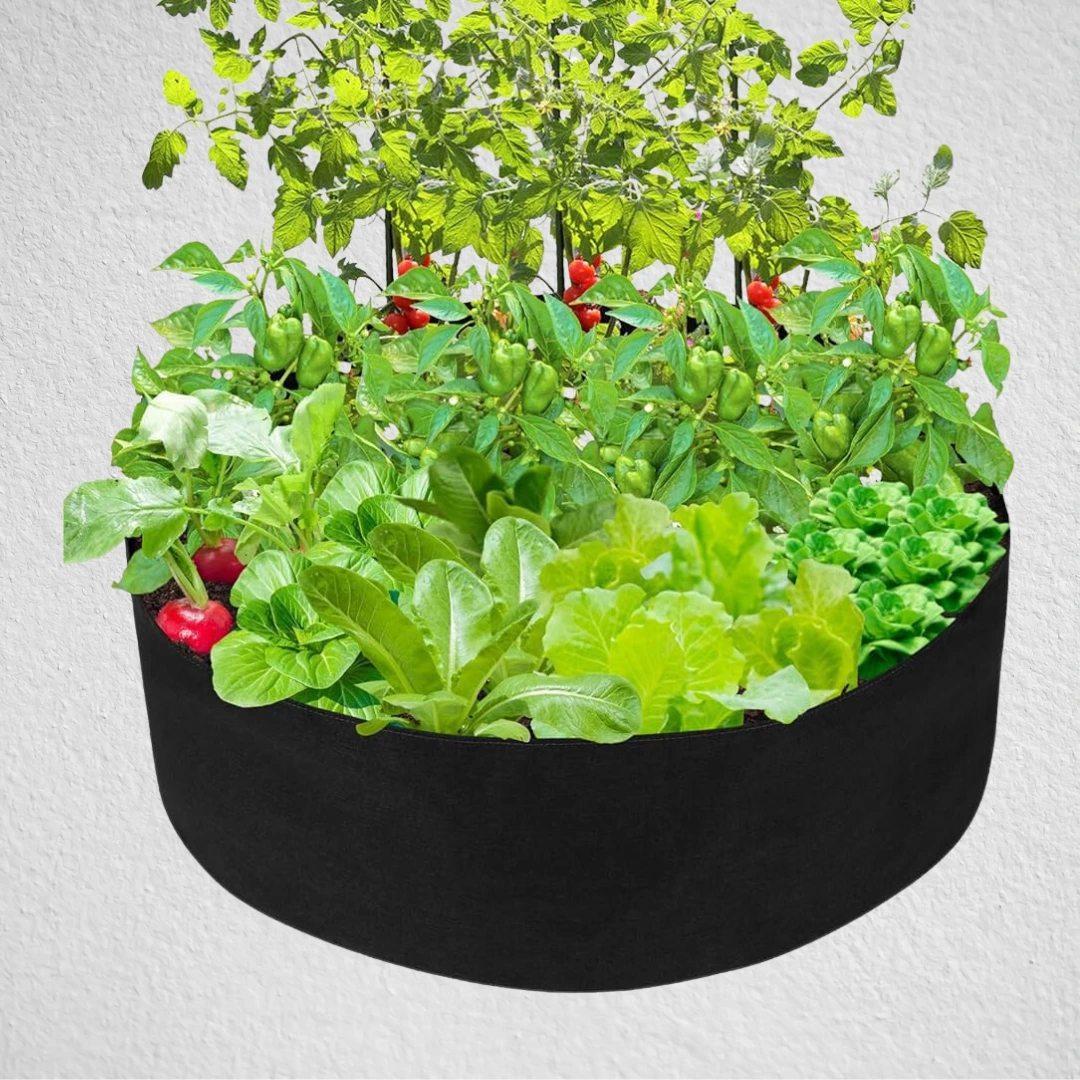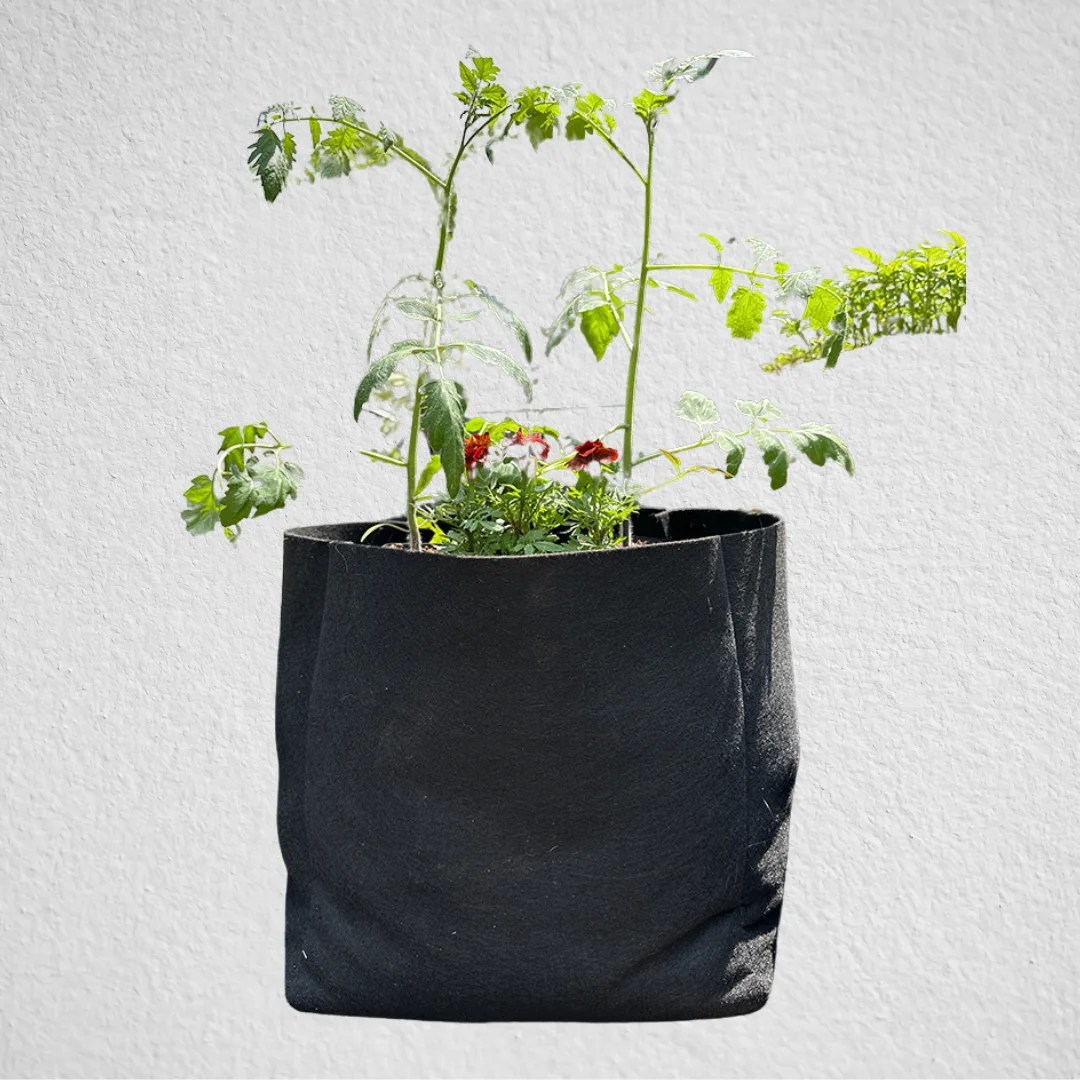Non Woven Planter Bag
Manufactured from breathable, non-woven material with high anti-UV properties, these water-pruning Wall Planter Bags encourage healthy root growth and nutrient absorption. They stabilize soil temperature, prevent root rot and circling roots, and are effective for over five years. Ideal for use with light soil mediums like cocopeat, they ensure optimal nutrient intake and are recommended for slow-growing, lightweight plants, avoiding vines for a visually appealing garden.
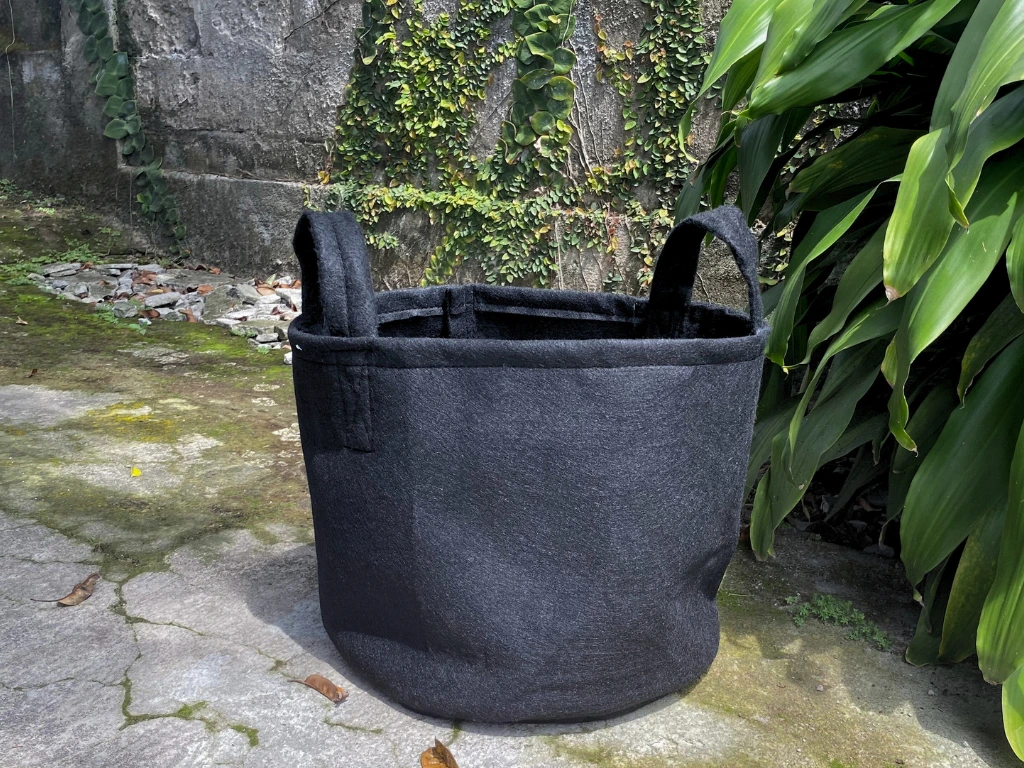
Advantages of Using Non-Woven Fabric Planter Bags
In the evolving world of gardening and agriculture, the use of non-woven fabric planter bags has become increasingly popular. These innovative planters offer a range of benefits that are transforming the way we approach plant cultivation. Here are the key advantages of using non-woven fabric planter bags:
1. Enhanced Air Flow and Water Drainage
Non-woven fabric planter bags are designed to allow excellent air flow and water drainage. This prevents overwatering and root rot, common issues in traditional planting methods. The improved air circulation helps the roots to breathe, leading to healthier and more robust plant growth.
2. Promotes Healthy Root Systems
One of the most significant benefits of these planter bags is their ability to encourage a healthier root system. The fabric’s texture promotes air pruning, where the roots grow to the edge of the bag and are naturally pruned by the air and light. This process prevents root circling and encourages the growth of more feeder roots, which absorb nutrients and water more efficiently.
3. Durable and Long-Lasting
Non-woven fabric planter bags are known for their durability. They are resistant to tearing and can withstand harsh weather conditions, making them a long-lasting option for gardeners and farmers. Many of these bags are reusable, offering an eco-friendly alternative to traditional plastic pots.
4. Lightweight and Portable
These planter bags are incredibly lightweight, making them easy to move and transport. This is particularly beneficial for gardeners who have limited space or need to move plants according to seasonal changes in sunlight.
5. Temperature Control
The non-woven fabric provides excellent insulation, helping to regulate the soil temperature. This is crucial for plant health, as extreme temperatures can stress plants and hinder growth. In colder climates, the fabric can protect the roots from freezing, while in hotter regions, it helps to keep the soil cool.
6. Eco-Friendly
Non-woven fabric planter bags are often made from recycled materials and are themselves recyclable, making them an environmentally friendly choice. By choosing these bags, gardeners and farmers can reduce their carbon footprint and contribute to a more sustainable future.
7. Versatility
These bags are suitable for a wide range of plants, from vegetables and herbs to flowers and shrubs. Their versatility makes them an ideal choice for various gardening projects, whether in a small home garden or a large commercial farm.
8. Improved Plant Growth
With all these benefits combined, plants grown in non-woven fabric planter bags often show improved overall health and growth compared to those grown in traditional containers. This leads to higher yields and more successful gardening endeavors.
Non-woven fabric planter bags offer a modern solution to many traditional gardening challenges. With benefits like enhanced root health, durability, and environmental friendliness, they are an excellent choice for gardeners and farmers looking to optimize their plant growth and contribute to a more sustainable gardening practice.
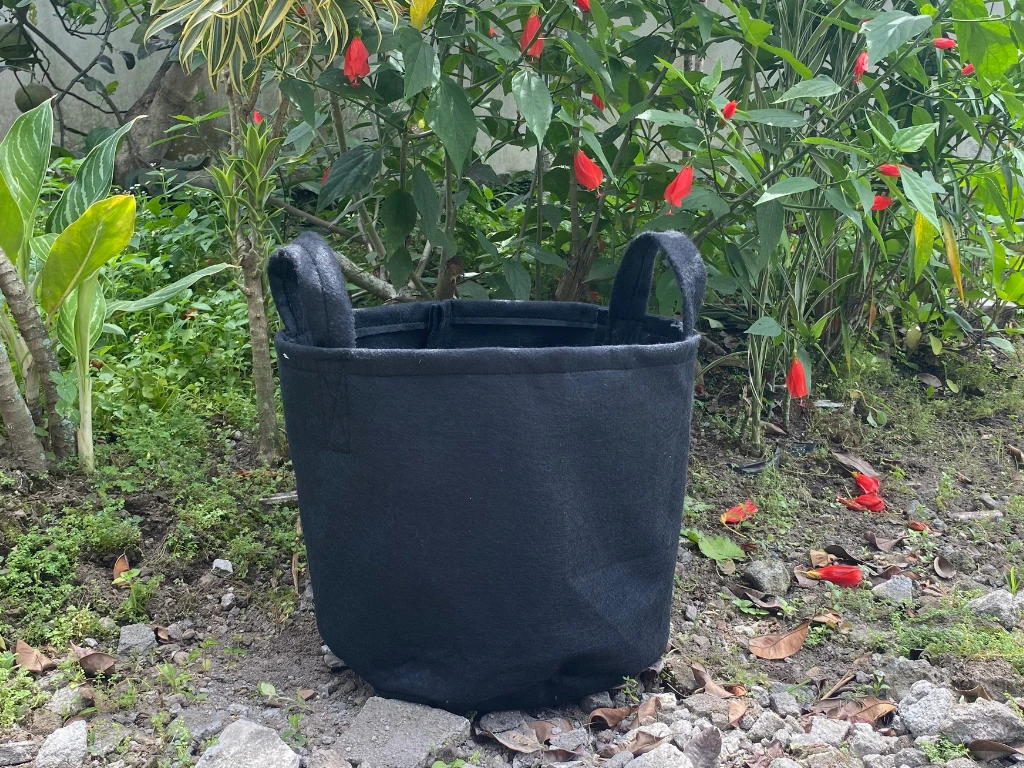

Are nonwoven grow bags good?
Vegetables best suited for growing in planters include tomatoes, peppers, radishes, leafy greens like lettuce and spinach, and herbs such as basil and parsley. These plants thrive in confined spaces and require relatively shallow root depth. Planter gardening also allows for better control over soil quality and moisture, essential for these vegetables. Additionally, compact varieties of cucumbers and beans can be grown vertically with support, making efficient use of limited space.
What is the best material for grow bags?
The best material for grow bags depends on specific gardening needs. Fabric grow bags, often made from breathable, non-woven materials like felt, are popular for promoting healthy root growth and preventing root circling. They offer excellent drainage and aeration, essential for plant health. Plastic grow bags are more durable and retain moisture longer, but they lack breathability. For organic gardening, natural fibers like jute or hemp are preferred for their eco-friendliness and biodegradability, though they may not last as long.
What is the difference between woven and nonwoven grow bags?
Woven grow bags are made from interlaced threads, creating a breathable, flexible, and durable fabric. They allow for better aeration and drainage, promoting healthier root systems. Non-woven grow bags, typically made from felt-like polypropylene, are less structured but still offer good drainage and aeration. They are lighter and often more cost-effective. Non-woven bags can prevent root circling and are easier to move, but woven bags generally last longer and are more resistant to wear.
Why use non-woven bags?
Non-woven bags are used for their strength, durability, and reusability, offering a better alternative to single-use plastic bags. They are lightweight, cost-effective, and can hold more weight without tearing. These bags are also customizable and visually appealing, making them suitable for promotional purposes. Additionally, they are recyclable, reducing environmental impact compared to traditional plastic bags. Their use encourages eco-conscious consumer behavior and supports waste reduction efforts.
Is non-woven bag Eco-friendly?
Non-woven bags are generally considered eco-friendly due to their reusability and durability compared to single-use plastic bags. Made from polypropylene, they are recyclable and consume less energy in production. However, they are not biodegradable and can contribute to environmental pollution if not disposed of properly. The eco-friendliness of these bags largely depends on repeated use and proper recycling practices.

